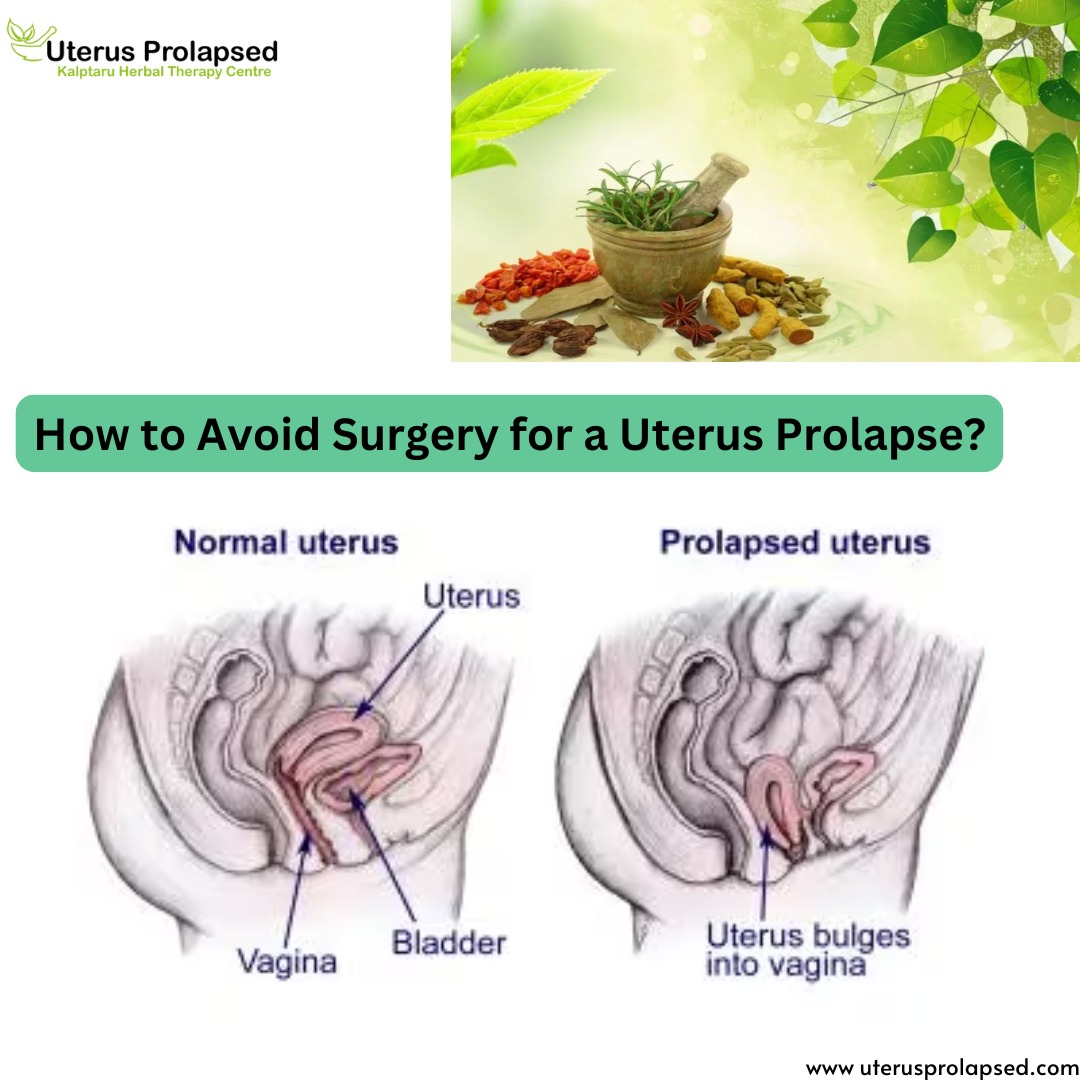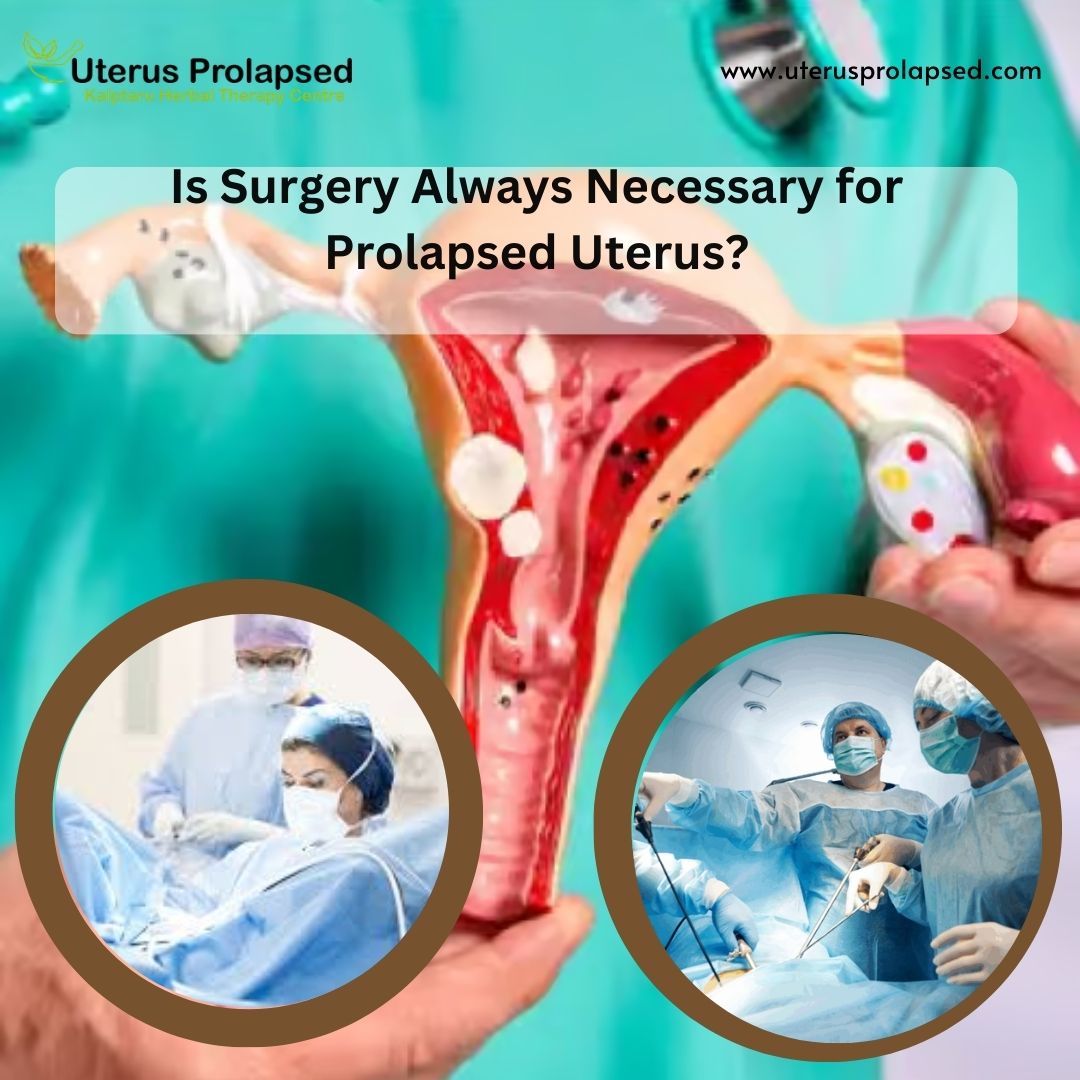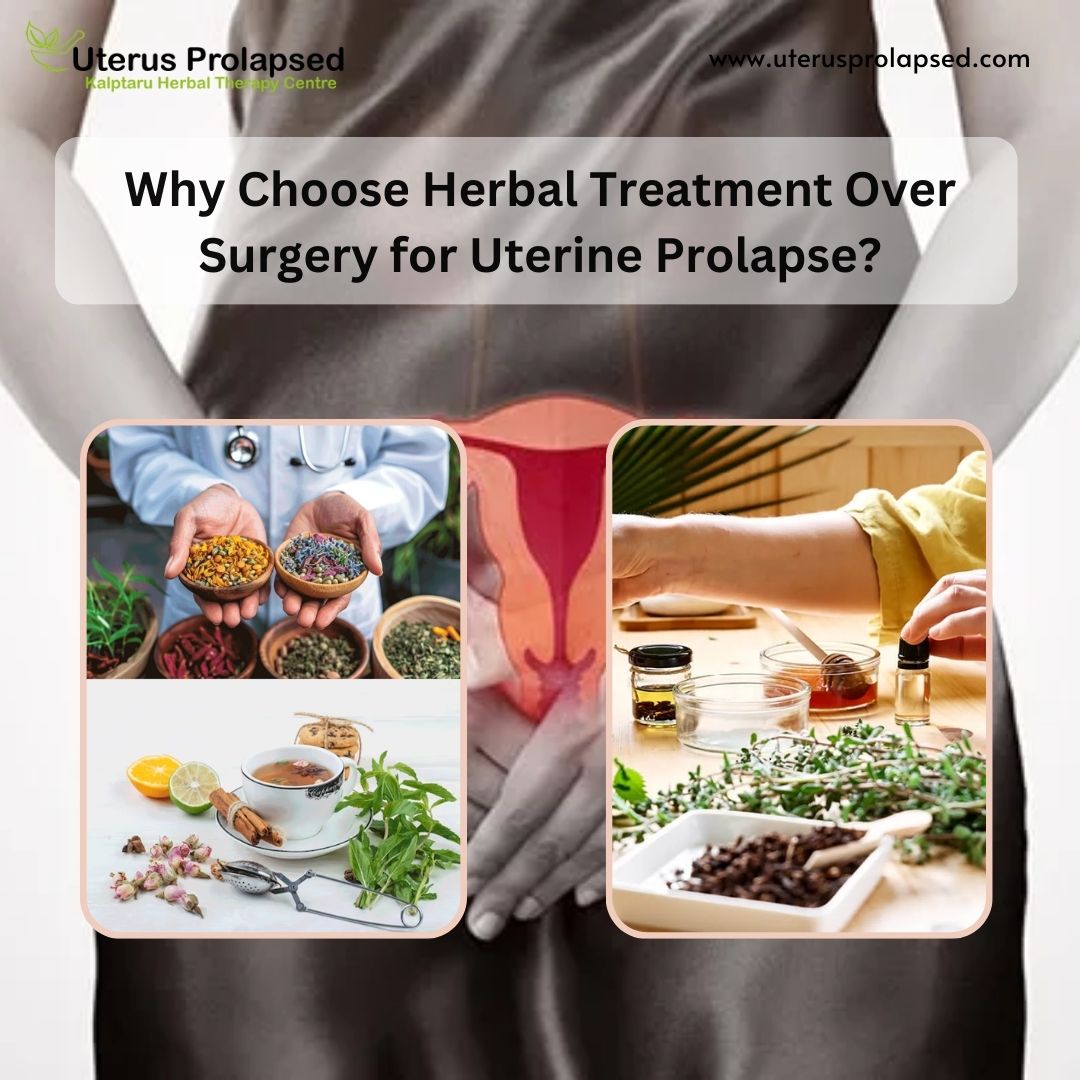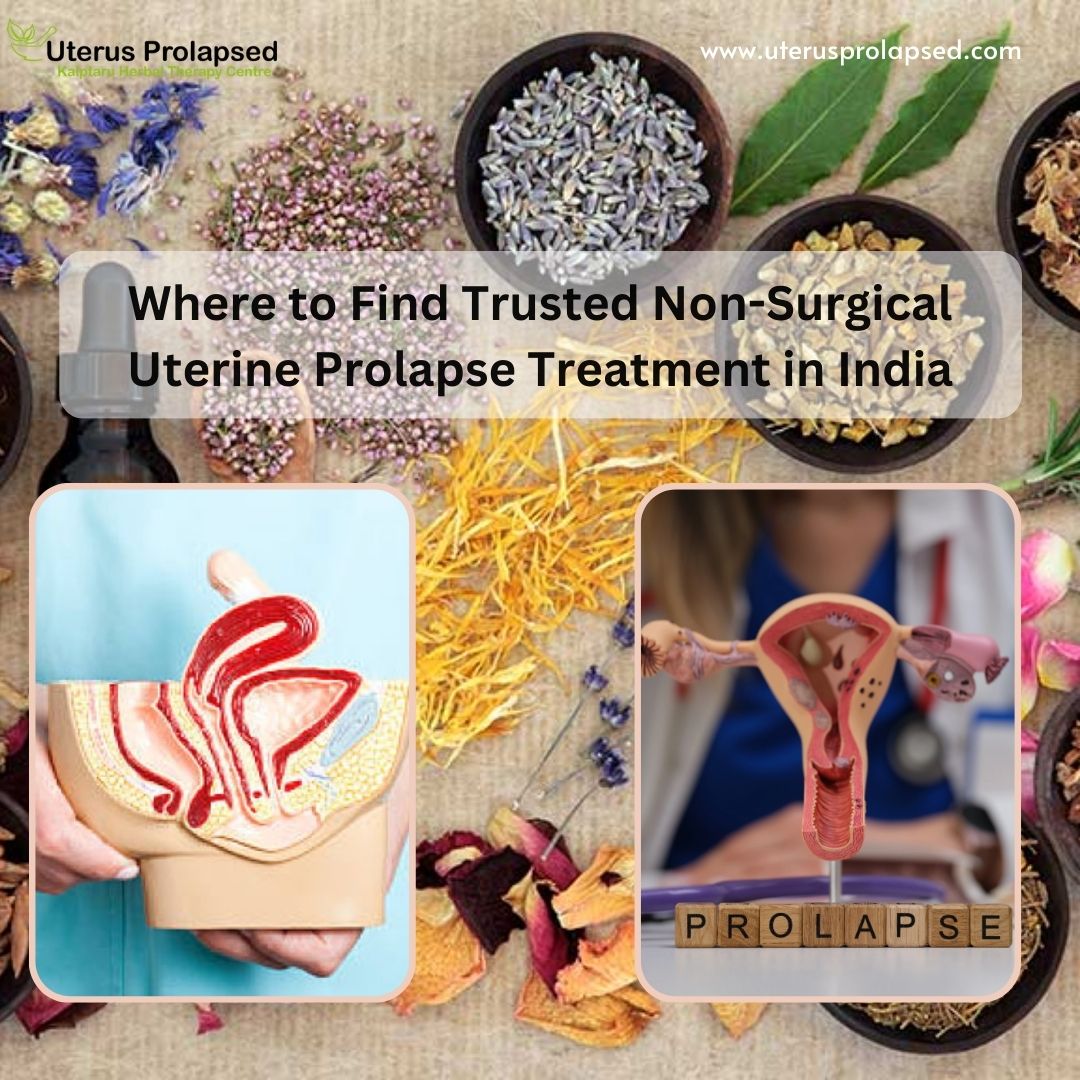Dealing with a prolapsed uterus is never easy. However, there are various alternative treatments besides surgery. Many nonsurgical remedies will cure the condition in an effective way. Examples include lifestyle modifications, pelvic floor exercises, and drugs like herbal medicines.
Healthy choices such as appropriate weight and not lifting can also prevent the condition from becoming worse. Consulting an expert from Kalptaru Herbal Therapy Centre is an important step to explore these options and find the best plan for your needs. In following expert advice and making simple practices, you can avoid surgery and manage your condition effectively.
Treat Your Uterus Prolapse Without Surgery
Yes, avoiding surgery for the prolapse of the uterus is possible. The non-surgical methods include strengthening the muscles with pelvic floor exercises, also known as Kegels, and taking herbal medicines to offer support for the prolapse and relieve discomfort. Lifestyle modifications, such as keeping up a healthy weight and avoiding the lifting of heavy objects, lessen the strain on the pelvic floor muscles.
However, there is the need for proper consultation to come up with a better prognosis based on severity and an individual’s general health status.
Why Should You Avoid Surgery for Uterus Prolapse?
Surgery for uterine prolapse may appear to be an easy solution, but it carries risks and long-term complications. Non-surgical interventions such as physical therapy, herbal medicines, and lifestyle changes can effectively treat the condition permanently without requiring surgical intervention. Here are reasons why surgery should be avoided:
- Risk of Complications: Surgeries can lead to infections, bleeding, or damage to nearby organs.
- No Guarantee of Success: Prolapse may return even after surgery, requiring additional procedures.
- Protracted Recovery: Surgery recovery takes weeks or months, restricting daily activities.
- Expensive Treatment: Surgery is expensive and sometimes is not covered by insurance.
- Affects Fertility: Some surgeries permanently damage the fertility capability.











